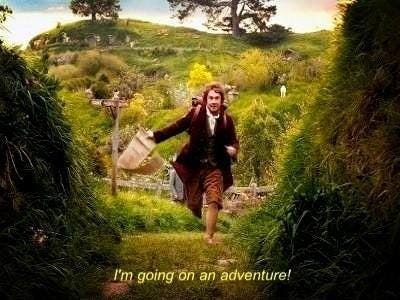Thanks for checking out this new blog. I'm Nikos, 31, and I'm currently doing a PhD in Infectious Disease Forecasting. But that's not what this blog is about. I also spent a lot of time travelling around and learning different languages. In this blog, I'll explore methods, strategies, and shortcuts to speed up language learning. I’ll document my own journey and reflect on things that I think did (or didn’t!) work well.
In school, we often spend years studying a language without making any meaningful progress. Sadly, I'm not a very patient person… Surely we can do better! But how much better? That's what I'm going to explore in this blog.
My very first project will be a 30-day language speed run. I'll pick a language, give myself 30 days to learn it, and see how far I can go. You can follow along with the progress I make on Twitter (where I post daily updates) and here on Substack (where I post regular summaries, at least every couple of days). Whether you're a interested in learning languages yourself or just curious about the process, join me along the way!
My language learning background
My native language is German. I learned English in school and through lots of exposure over time. In school, we also had French classes for several years, but I only really learned to speak French while living a few months in the French part of Switzerland. We also had Latin classes, but I'm not sure they were particularly useful for anything. During the last year, I spent time in both Turkey and Mexico and studied Turkish and Spanish.
I'd describe my attempts at learning Turkish as not very successful overall. I only studied it for a few weeks, and Turkish is unlike anything I've ever learned. But I think that failure is on me. I'll go into more details on what I did and what I think I could have done better in a different post.
Over time, I got better at studying languages. I'd call my attempts at learning Spanish much more successful. It took me around 6-7 months to get to a good B1 level (of those I spent two in Mexico). I mainly focused on studying vocabulary and conjugations using a flashcard app called "Anki." Additionally, I read a book (Dune) in both Spanish and English. Whenever I couldn't understand a sentence, I'd just read the corresponding sentence in English. I also tried this approach with Turkish - but failed completely. When reading a Turkish sentence, I was lucky if I recognised a single word… Spanish was a lot easier since many words are similar to those in French, English, or Latin. Reading therefore was a fun activity.
Probably, there are a few things I could have done to learn Spanish faster, but overall, I'm happy with the experience. I enjoyed the challenge, liked getting better at it, and felt really good when I could finally communicate with people!
Studying smarter, not harder
Still, I'm curious: how much faster can one go? What is the most effective method to learn a language? Sure, everyone has their style, and different people learn differently. But I still think there are strategies that generalise well.
To some extent, you can probably always speed up your progress by doubling the time you spend studying. But that's not what I'm interested in. I want to know how to study smarter, not harder! There is probably some minimal effort needed to learn a language. If you're only exposed to that language for 2 minutes a day, you won't make much progress. But we all have jobs or lots of other things to do, and we won't have time to actively study for hours every day. So part of the challenge will be integrating language learning into our day-to-day routines.
Details on my first 30 day language learning speed run will follow soon. Also, I’m always curious to hear what you think!




What's your twitter handle?!
Thanks.